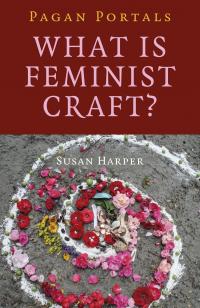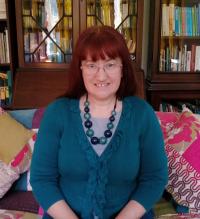

As most of my readers will know, I have a fascination for odd and obscure historical facts that are hidden away in the millions of sources that outstrip and confound the confines of the Internet – it’s finding them that presents the stimulation and the challenge. If we merely rely on the regurgitated information of contemporary paganism not only does our mind become stagnant, but for those who follow the Craft of the witch, so do our magical abilities.
Over the years I have also incorporated a great deal of folk- cunning- and country-lore into my books on witchcraft with a view to preserving that knowledge for future generations. Much of what even my grandparents’ generation once knew is now lost because it was never recorded for posterity. True there are numerous pagan books written about similar subjects but it is obvious that a large number of them don’t have the countryside in their blood and fail to reflect the magic and mystery of growing up in an uncomplicated rural environment. Strangely enough, these sentiments are often now viewed as some form of elitism but I prefer to go back to the roots of learning rather than consult something that has been cobbled together from different popular titles without any true grounding in Nature.
Both The Secret People and CRONE! are autobiographical and were a lot of fun to write. The Secret People is a wander down memory lane and a step back in time; it is that ‘other country’ of the past where parish-pump witches, wise women and cunning folk still travel the highways and byways of a bygone era. Their voices can still be heard in the recipes and remedies handed down via an oral tradition, and now giving new knowledge to the next generation of pagans. It was a world where men went out with a ferret in a box and a long-net, accompanied by a silent long dog for a companion under a ‘poacher’s moon’.
From ‘owl-light’ until dawn these people walked silently in the woods and along the hedgerows, watching and waiting to collect Nature’s bounty to be used for the benefit of themselves and their neighbours. From them came the introduction to spells and charms, divination and fortune-telling; the language of birds and the movement of animals – all grist for the witch’s mill. Mysterious horsemen might share secrets of horseshoe nails and thunder-water; while countrymen lived by weather, the seedtime and the harvest.
Few of The Secret People could be called traditional witches by any stretch of the imagination, and many would have been mortally offended to be referred to as a ‘witch’ or ‘pagan’. Few parish-pump witches would have thought about the skills they possessed since these were natural abilities, and even fewer wise women and cunning folk would have had any concept of the sombre and often dangerous rituals required for the raising of energy needed in the practice of true witchcraft. Theirs was a knowledge that filtered down in the form of spells, domestic plant medicine and country lore, imparted to offspring, friends and neighbours, who in turn handed it down to their children…and so on down through the generations. In fact, in his Dialogue Concerning Witches & Witchcraft (1603) George Gifford observed that local wise women ‘doth more good in one year than all these scripture men will do so long as they live’.
The Secret People would have greatly outnumbered the practitioners of traditional witchcraft since the practical abilities that define a true witch are bred in the bone and not everyone can lay claim to the lineage. The skills of The Secret People can, however, be learned and perfected with practice and for those who struggle to find a label with which to empathise, it is hoped the lessons taught here will help the reader to establish some sort of identity that sits comfortably with them. Today, under the ubiquitous umbrella of paganism, the parish-pump witch runs the occult shop in the high street, the wise woman dispenses Reiki healing and the cunning man has become a professional tarot reader. The countryman’s world has disappeared under a sprawl of urban housing and ring roads, while the poacher has yielded his domain to the brutal gangs who slaughter wildlife on a commercial scale – even the poacher’s dog, the lurcher, has found his niche in the ‘fly-ball’ event at Crufts! And yet…the knowledge of The Secret People is still there for the learning, if only we know how to search for it and rediscover our identity.
The Secret People: Parish-pump witchcraft, Wise-women and Cunning Ways - Melusine Draco
Categories:
0 comments on this article






